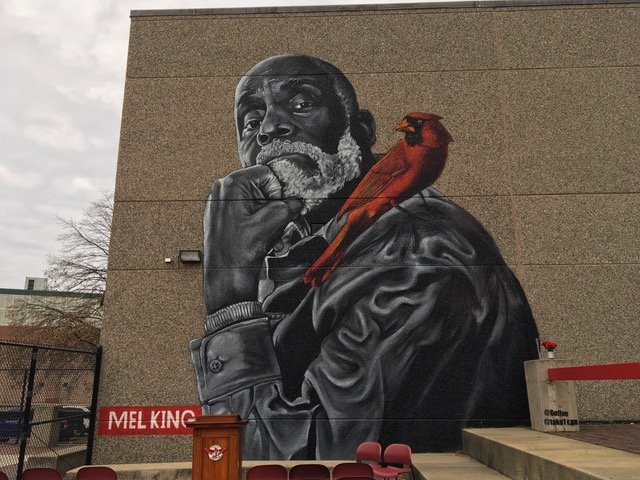Celebrating Melvin “Hugs” King
Not enough time to deliver my well-prepared remarks, after Former Mayor Kim Janey unveiled the sign designating “Mel King Park” at the intersection of Yarmouth Street and Columbus Avenue last November. Everyone had a story to tell about the personal and, in some cases, transformational impact Mel has had on the course of their lives. Kim Janey grew up a stone’s throw from Mel’s home. Hundreds had gathered and each time a speaker recited Mel’s well-known adage -- “Love is the question” the gathered people would respond “And, Love is the Answer”.
Yes, to love!
I cannot let another day pass without honoring my mentor and friend, Mel King; a former Massachusetts State Representative and the first Black man to mount a successful campaign for Mayor of Boston. Why? Mel hired me for my first big job, director of the adult education center for the New Urban league of Boston and he stood with me, Governor Weld and Lt Governor Paul Celluci when I was sworn in as Secretary of Consumer Affairs and Business Regulation—the first Black woman to hold that seat in the history of the Commonwealth of Massachusetts. Mel and I go way back.
Mel is 94 now and gets around in a wheelchair but there are legions of activist, like me, who have been influenced, guided, inspired, and lifted by his advocacy, wisdom and, most profoundly by his unconditional love.
Yes, love.
It seems incongruous that a six foot four, jumpsuit wearing, tennis enthusiast, lifetime South End resident and MIT professor emeritus would teach us that “love is life”. However, when you read his poetry and his book Chain of Change — you will appreciate Mel’s perspective of the “chains” that caused people to struggle against a system that did not see, care, or “love” them. Unlike so many others who continue to blame people for their conditions—poverty, addiction, incarceration, undereducation or poverty — he appreciated that the conditions are not the same as a person’s humanity.
All who know Mel, recognize that he listens, deeply before speaking, sometimes in a whisper. He considers human psychology more deliberately before acting. He recognized the deleterious and unrelenting effects of systemic and structural racism when he wrote “Chains” in 1981; he understood the complex and endemic underpinning of how our economy operates. He was way ahead of the game.
No, we do not love you, or you, or people who look like you
Mel believes that “Living is loving” the way to build solidarity and shape the realities of our day to day . Broadly defined “community is the continual process of getting to know people, caring, and sharing responsibly for the physical and spiritual condition of the living space of the places we work, play and traverse…. Community promotes self-development…. Community counteracts the frustration, depersonalization, and fragmentation which our current society forces on people.” Before the term intersectionality was coined, Mel was teaching his MIT Community Fellows the knits and grits of it.
I wonder: What if who we “love” determines access to goods and services? What if love is a proxy for social justice. What if we could track and measure it? Maybe we need new measures, a topic that Nobel Prize winning economist Joseph Stiglitz positioned in 2019 when he stated that the GDP-- the way we “assess economic prosperity and social progress is fundamentally wrong” and, “So what if GDP goes up, if most citizens are worst off”.
Love is the question: the pernicious absence of love helps explain the fear and disarray in our communities especially considering all that we have witnessed and experienced since the onslaught of Covid and racial reckoning.
I have hope because “perfect love drives out fear” [1 John 4:18]. Life is made more perfect when you spend time with Mel King. You will never have to ask the question: do you love me? He always has and he always will, unconditionally.
Yes, love is the question and love is the answer.



